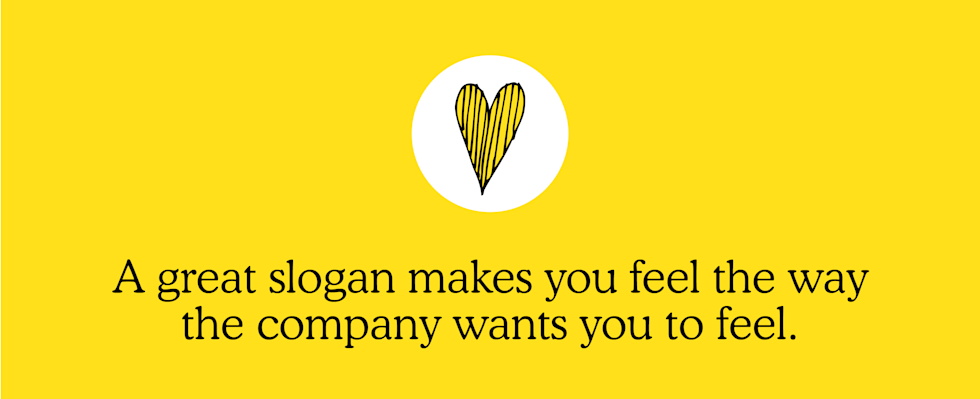Brand identity
A good slogan sets you apart from other businesses that sell the same products.
Consider the slogans of insurance competitors State Farm and Allstate. In its ads, State Farm emphasizes familiarity and proximity, "Like a good neighbor, State Farm is there." Allstate's slogan "Are you in good hands?" reminds customers of security and safety.
Both of these giant insurance companies have become memorable because of their ability to connect with the deep emotional needs of their customers in one sentence.
You can get the same feeling from the rest of their advertising, too, but their slogans boil down all of their advertising efforts into a single statement you can easily remember. Successful branding helps differentiate your business from its competitors.
Brand recognition
Together with your logo, your business slogan is a key part of your branding that makes your product or service recognizable.
The best slogans will make everything about your products a welcome advertisement, reminding your customers of the good experiences they have had with your products and your service. Over a period of several years, your slogan and your brand consistency will automatically draw attention to every ad you place.
How do you create a slogan?
Now, let's put these rules together with some highly recognizable business style guide examples for operationalizing the best slogan ideas.
Remind customers why they value your products
It's true that some big companies have had success with slogans that are basically commands, like Nike's "Just Do It." But you aren't Nike. You need to give your customers a reason to remember your brand.
For instance, if you operate Acme File Folders, your slogan could be "We Know File Folders." Nike's slogan is something people remember in many different kinds of situations. But Acme File Folders will come to mind when their customers need file folders.
Communicate the ideas the rest of your advertising doesn’t cover
One way to look at slogans is as the glue that holds your brand together. Good slogans will communicate some quality of your products that underlies everything you do, whether it's taking care to provide the highest quality, being extremely knowledgeable and experienced with your product line, or simply treating customers with courtesy, honesty, and respect.
An example of this kind of slogan? "You're In Good Hands," again from Allstate.
Have a slogan people can associate with daily
Consider the slogan for Kit Kat candy bars. People take breaks. Kit Kat wants their customers to eat their candy bars when they take a break. Accordingly, their slogan is "Have a break, have a Kit Kat bar."
The company has built ad campaigns around its breakable candy bar, including "Breaks are good, have one" and "Break time, anytime." But "Have a break, have a Kit Kat bar" is recognized throughout the English-speaking world.
Let's summarize from slogan best practices:


